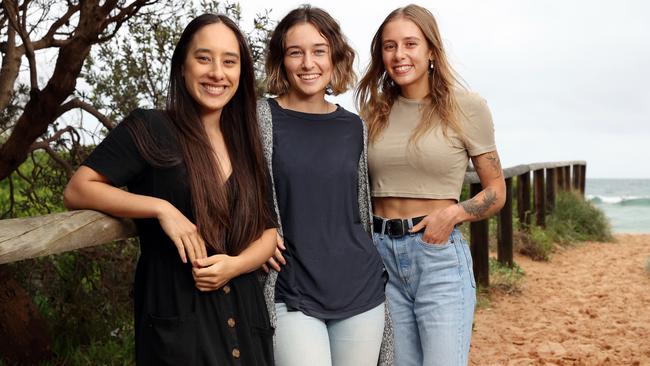Millennials turn to book called Attached to navigate relationship minefield
A theory on psychology first seen 60 years ago is experiencing a resurgence among young people, who are using it to navigate the minefield of relationships.
NSW
Don't miss out on the headlines from NSW. Followed categories will be added to My News.
A 60-year-old psychology theory has become the latest social media phenomenon with its new-found popularity among Gen Zs and millennials sparking memes, Tik Tok videos and skyrocketing book sales.
Attachment theory, an analysis of how childhood patterns impact the way adults behave in romantic relations first outlined in lectures by the British Psychoanalytical Society in 1957, has become the psychology du jour for Australia’s younger generations, whose hip believers are using social media platforms in conjunction with psychological texts to decipher themselves.
The seminal latter-day text on the topic, 2012 book Attached by Amir Levin and Rachel SF Heller, is now being bought in record numbers by the average punter looking for love.

The theory breaks down attachment style into four categories, anxious, avoidant, secure and disorganised, and includes advice on why adults form these ways of connecting and how they can impact them in relationships.
The book experienced a 50 per cent increase in sales in 2020 compared to the year prior, according to data from Booktopia. Merchandise head Jo Lewin said book had continued to climb in sales this year with readers turning to it because “it’s cheaper than therapy”.
“The personal development and psychology category has increased in sales and we are seeing an increase of about 30 per cent (overall),” she said.
“Attached sold 10,000 copies last year. It’s a lot cheaper than therapy. The millennial audience has really embraced this time of publishing.”
Ms Lewin said another trend driving the sales was psychologists prescribing the book to their patients to “accelerate” their progress.
As a result of the appeal to younger audiences, the theory isn’t just being discussed in therapists’ offices around the country — its devotees are also using it to create social media videos about their own relationship patterns with memes like “Avoidant Attachment starter pack” flooding social media.
Mental health and psychology researcher Ash King said despite the current popularity, the theory could not be lumped in the same basket as psychological fads like the Myer-Briggs personality test.
“It is based in research and something that has been studied for the past 60 years,” she said. “It teaches us about relationships we had with our caregivers and our formative relationships in school, high school and how they have influenced the way we behave and response in adult relationships.”
Attachment theory devotee Yasmin McFadden said understanding the topic helped the 23-year-old improve her relationships.
“I like knowing what other people’s attachment styles are so I can understand them better,” she said.
“It’s a good way to get to know people more and opens up conversation on what is important and how our past has impacted us.”
Under the theory, her close friend Hannah Leung, is classed as ‘secure’ — the healthiest attachment style. She said knowing about her patterns allows her “to be better in relationships”.





